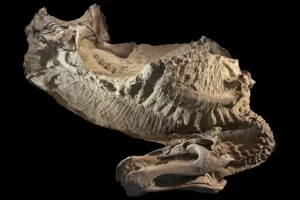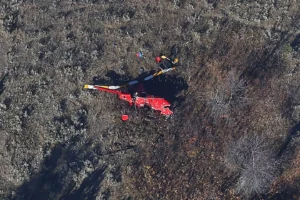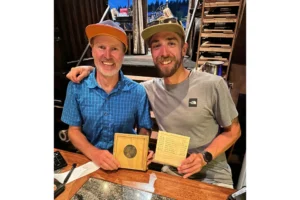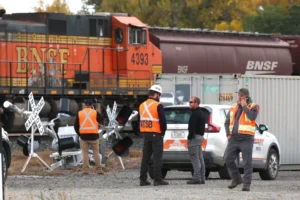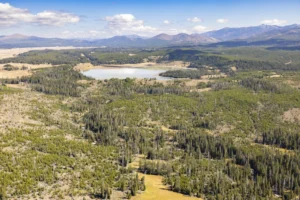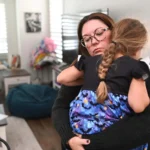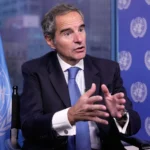Yellowstone Chief Marks Five Years on Job (Part 2)
Superintendent Cam Sholly lauded by peers for strong leadership in the face of adversity
- Published In: Other News & Features
- Last Updated: Nov 03, 2023
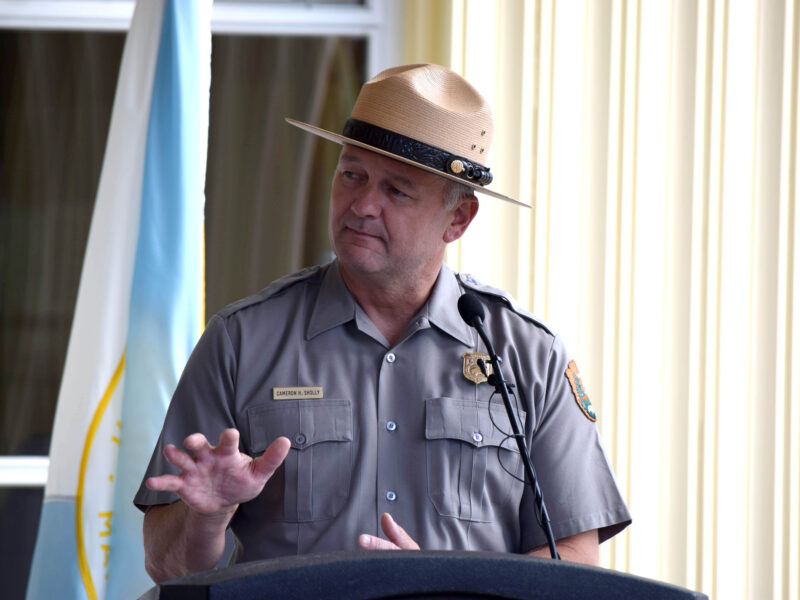
Yellowstone National Park Superintendent Cam Sholly speaks in 2019 at the reopening of Mammoth Hotel following extensive renovations at the historic property. (Wyoming Truth file photo by Ruffin Prevost)
By Ruffin Prevost
Special to the Wyoming Truth
This is part two of the Wyoming Truth’s exclusive interview with Yellowstone National Park Superintendent Cam Sholly. Part one can be found here.
CODY, Wyo. — As Yellowstone National Park Superintendent Cam Sholly marks his fifth anniversary at the park, he is garnering praise from some leaders in gateway communities for his ability to manage under difficult circumstances—from the COVID-19 pandemic in 2020 to the devastating floods in 2023.
Park County Commissioner Lee Livingston said Sholly has done the best job of any superintendent he could recall at partnering with Cody and other gateway communities.
“Cam hit the ground running five years ago and hasn’t slowed down,” said Livingston, who has spent time with Sholly in the remote Thorofare region that extends into Yellowstone’s southeastern corner. “He is very sensitive to the importance of the Yellowstone gateway communities, and has a great relationship with Park County. Park County, the state of Wyoming and our nation as a whole are very fortunate to have Cam at the helm in Yellowstone Park.”
Sholly recently spoke with the Wyoming Truth about some of the challenges he has faced and what’s ahead in the future. What follows are excerpts from the conversation, edited for length and clarity.
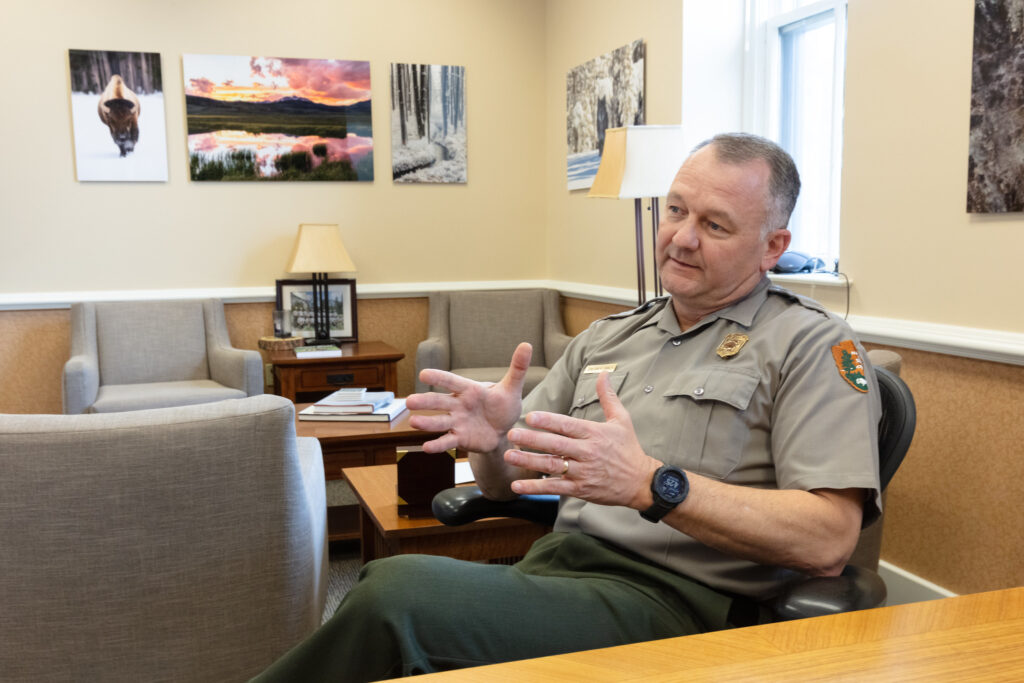
There has been some news coverage lately about how expensive it can be to get a hotel room in Yellowstone. Are you concerned that a hotel stay in the park seems out of reach for many working class Americans? Is that something you can control or influence?
Sholly: I think the Best Western in Cody is regularly over $350. I see Motel 6 in Jackson at $300-something. I’m not saying that’s good, necessarily. But if you look at the general prices of the gateway community AirBnBs, VRBOs, hotel rooms — especially peak season — you’re not getting any bargains. You can go to Bozeman [Montana] in July or August and it’s pretty hard to find hotel rates under $200-plus.
On the flip side, people are getting into the park for $2.89 cents per person per day. So there’s still a considerable amount of affordable—I mean, it depends on your idea of what affordable is. But if you look at Glacier, you look at Yosemite or Grand Canyon or Yellowstone, it’s not just more expensive in the parks. It’s just as expensive out of the parks. . . . So I don’t know what the exact right solution is. I don’t know if artificially price-capping hotel rooms is necessarily the right way to go either. But I think it’s a discussion for the future.
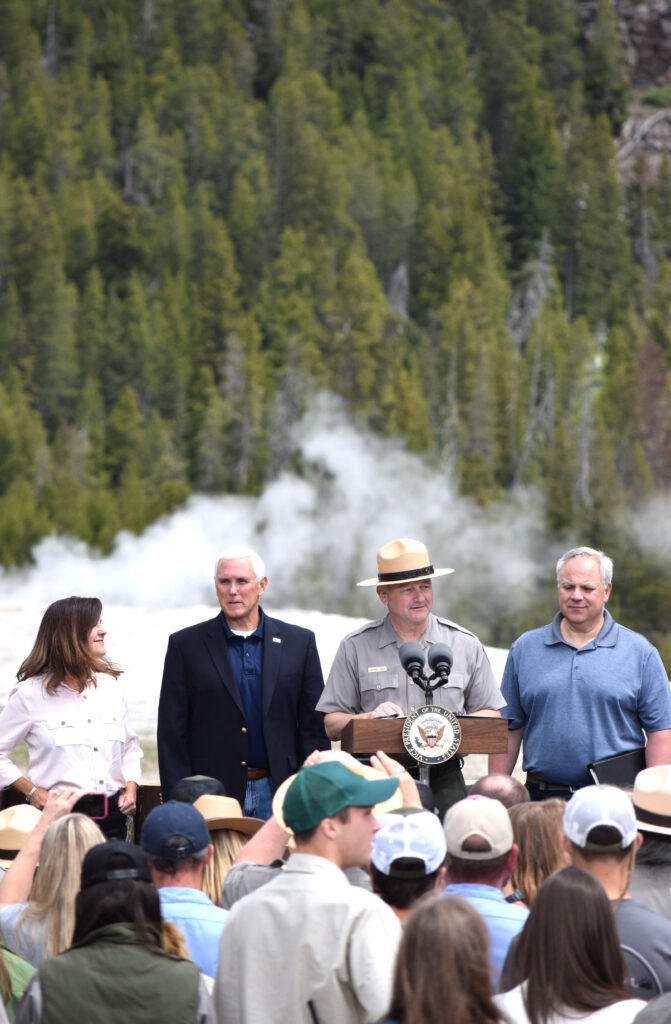
For people who live in the area, sometimes it’s easy to take Yellowstone for granted. Are there any routine sights or sounds or experiences that still make you take a breath and pause for a moment to reflect?
Sholly: Oh, well, we’re just coming off the [elk] rut here. . . .It’s pretty dramatic, pretty incredible. People can go out and watch wolves in the Lamar Valley and are able to do that year-round. We’ve got some pretty good reports about the economic benefits of wolf watching—$60 to $80 million dollars per year from people who come here to watch wolves. Where else are you going to see that? Where else are you going to see wolves taking down a bison or grizzlies and wolves fighting over a carcass?
I think it’s a pretty incredible place. And I do think there are, in some ways, people that live around here and are in this park on a regular basis [for whom] it’s easy sometimes to kind of take it for granted. But I think when you step back and think about how important this place is — the world’s first national park — we’ve made tremendous progress. I’m really optimistic about the future and the progress that we can make together.
When you speak in public, you almost always have high praise for your staff. How would you grade the people you work with over the last five years, and how would you grade yourself on the job you’ve done?
Sholly: I’ll let somebody else grade me. I don’t really care too much about that.
I think we’ve made really good progress, and I think the work the team has done speaks for itself under some of the most challenging conditions imaginable. The team — no question — gets an A. And not just the Park Service team, the partners. You look at these gateways and you think back to COVID and shutting the park down for two months and trying to reopen. And the flood, just overnight—“poof,” the park is closed, basically. We’ve been through a lot together.
So, I praise this team because they deserve it in the park. But we don’t do stuff alone here. And the number of ideas that came from the gateways in the last years during COVID or whatever — about what we should be doing and how we should be doing it —or to try this or to try that. It’s important to recognize that it’s a true, total team effort. There’s a lot of co-dependency in these communities and counties and states about the actions we take here and what their impacts are.
I’m not saying everybody likes me, or everybody agrees with every decision. I know that’s not true. But we’re looking out for each other in many ways. Overall, everybody understands the importance of the priority of protecting this place. But there’s a lot of peripheral impacts that come with that, both good and bad.
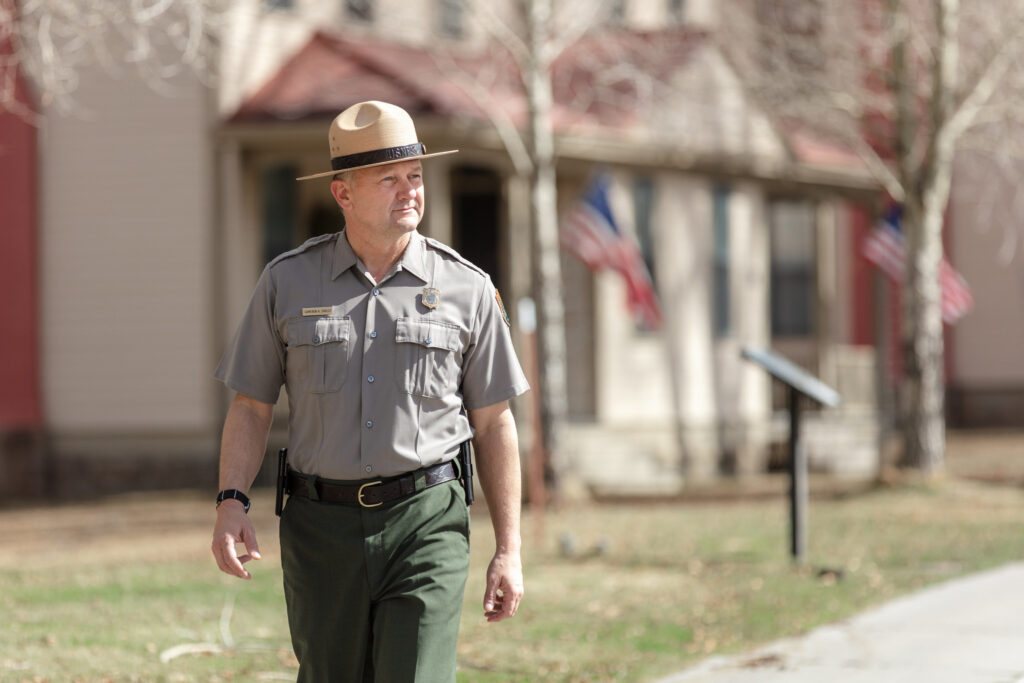
Striking that balance is really important. Making good decisions is really important. Being able to explain our decisions — even if people disagree with them — is important. And being able to change if we made a decision that’s not right and people point that out. I think we’ve got a track record of: “Hey, we tried something and it’s not working. Let’s change course and go a different direction, and be flexible.” I think that that comes with good relationships, and obviously, a strong team here. But also strong partners—both in the park and out of the park—that have helped us succeed.
You’ve been doing this for five years. In the Park Service, it’s not necessarily up to you where you end up. But where do you see yourself five years from now?
Sholly: I don’t know. [Laughs.] Right now, I’m trying to focus more on trying to do a good job. I’ve done this my whole career. Do a good job in the job you’re in, and good things happen later. I’m not necessarily seeking the next opportunity, per se.
But my time here will come to an end at some point, whether that’s in the next year, or five years, whatever the case is. And my goal is to pass on a park that’s in better condition than when I took management of it. And a park that’s got a good team in place that’s working on and focusing on the right priorities for the future. And giving the next person that comes in the ability to make the shifts that he or she thinks are important.
But hopefully, they will come in and go: “Wow, there’s a lot of really good things happening. What’s the role that I need to play to keep that momentum moving in the right direction?”

